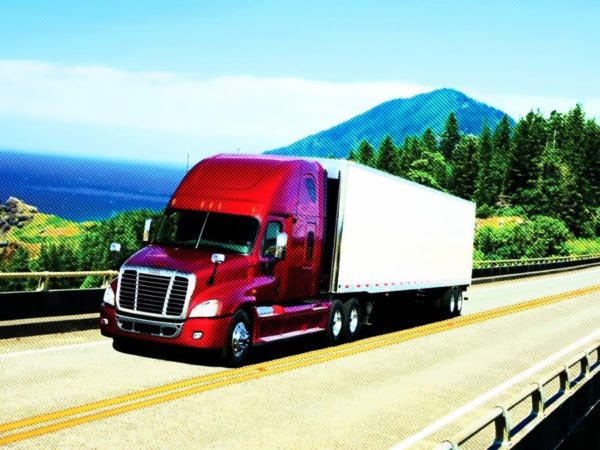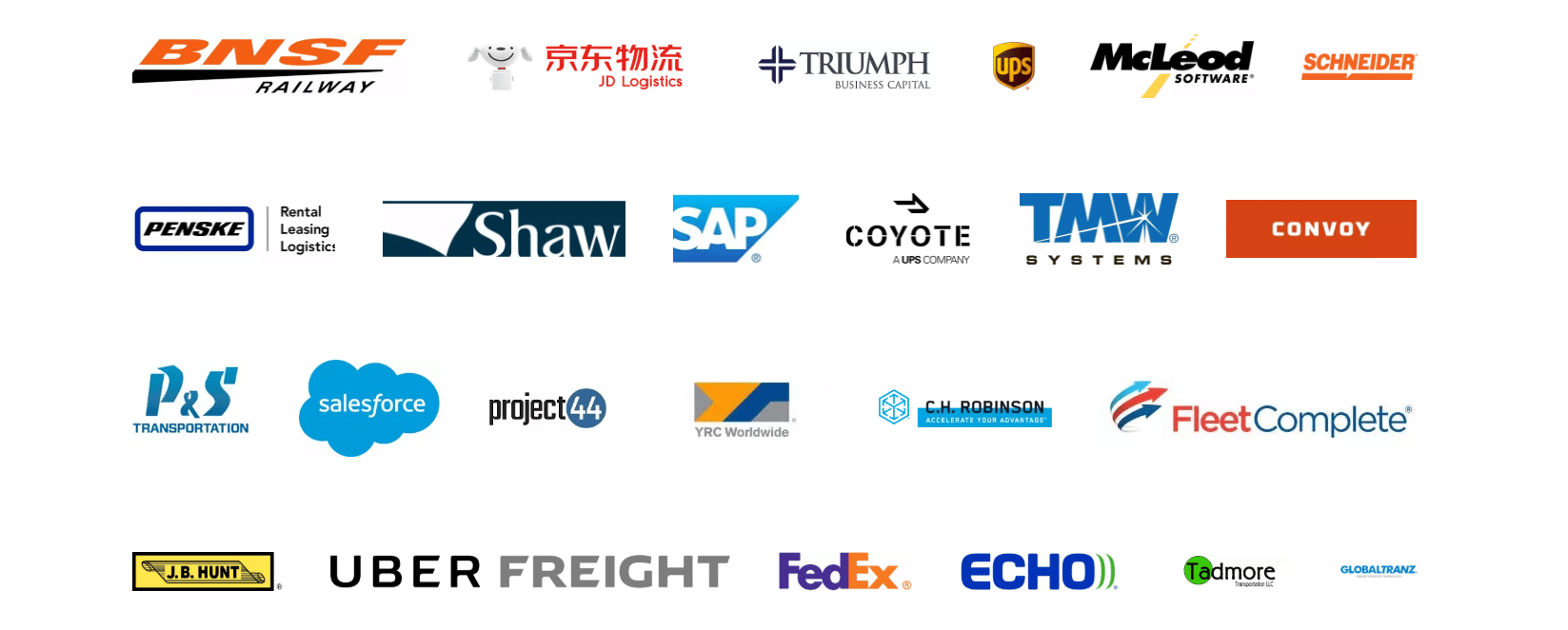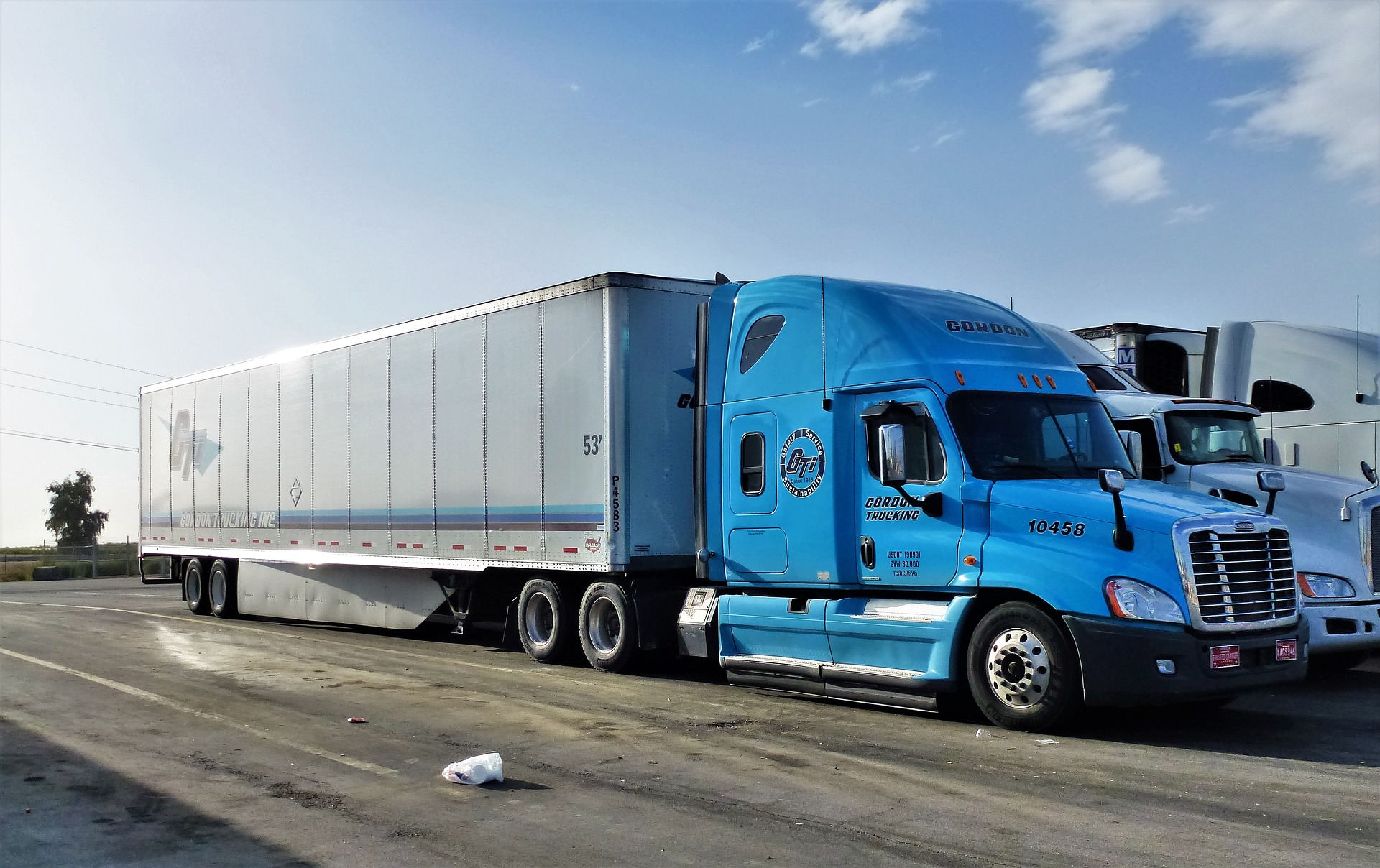- How will this new system function?
- Companies Developing This Technology
- Consumers
- Companies
- Truckers
Autonomous Trucking and Blockchain Technology: Advancing Supply Chain Oversight
The vision of an autonomous trucking fleet is already becoming a reality for some freight companies. Uber, Waymo, Tesla, and Embark are all working on this technology. While autonomous driving is an interesting technology in itself, its application for the trucking industry has even greater potential when combined with blockchain technology for supply chain logistics. Here is an outlook on how blockchain-based trucking will change the future of the global supply chain.
How will this new system function?
While many of the major blockchain projects (i.e. Bitcoin, Ethereum, and others) are focused on building public P2P payment systems, blockchain for the autonomous trucking industry would function as a private B2B logistics system. What this means is that not everyone would have access to shipment information. Instead, only relevant parties along the supply route would know the exact details and updates of shipments. Manufacturers, shippers, carriers, brokers, and the end customer are a few of the parties who could have access to this information.
Many supply chain industry experts think that blockchain is necessary because of its potential to solve many of the current market problems. Essentially, one of the biggest factors that could lead to further adoption of distributed ledger technology is the trucking industry’s ongoing fragmentation.
Currently, it’s very difficult to match shippers and carriers in a timely manner. Distributed ledger technology can help optimize autonomous trucking fleets by matching shippers and carriers in the most efficient ways possible.
For instance, an autonomous truck that has just been unloaded could use the blockchain to find a new shipment to pickup in that same geographic area. This would, of course, help companies save time and reduce/eliminate the possibility of empty trucks having to go long distances to pickup a new shipment.
Without blockchain, it could take hours or even days to line up the next shipment for smaller trucking companies. This is a real problem considering that 90% of trucking companies utilize six or fewer drivers. In addition, geolocation-based matching would make fleets more eco-friendly by reducing the amount of fuel needed to pickup and transport shipments.
Companies Developing This Technology
Blockchain in Transportation Alliance (BiTA) is an organization formed to promote the integration of blockchain technology into the trucking and global shipping industries. Some of the largest companies in the world are members of BiTA. Notable names include FedEx, UPS, Uber Freight, JD Logistics, Salesforce, SAP, and many others. When examining the diverse range of members in BiTA, it is clear that the impact of blockchain in autonomous trucking and the shipping industry in general will help foster a variety of collaborations across various industries. It will be interesting to see how companies develop their blockchain-based shipment systems and which platforms become the go-to standards. For now, most of these projects are still in the early stages. One of BiTA’s most important roles is to create greater industry standards for blockchain-based trucking. While this organization has several key industry members, it is also still in the early stages of establishing its standards as of May 2018. For example, FedEx only recently announced in January 2018 that it is working towards the creation of BiTA standards.
Consumers
For consumers, a blockchain-backed autonomous tucking supply chain will likely lead to a few key benefits. Shipments should be faster from the warehouse/manufacturer to the end customer. Of course, the ability of autonomous trucks to operate without stopping is considered to be one advantage for consumers who want to receive shipments in a much faster time frame. In addition, the blockchain will add another level of time optimization by improving the efficiency of trucking routes and the shipment/truck matching system.
Another important impact is greater transparency. Blockchain-based trucking will allow consumers to track packages and make logistics even more transparent than the current tracking systems offered by companies like UPS and FedEx.
Companies
As mentioned earlier, smaller trucking companies play a big role in the current industry landscape. With blockchain, larger companies with additional capital will likely see an increased advantage. Ultimately, small trucking companies will have to adapt to technological changes in order to remain competitive. Another factor to consider is standardization. If hundreds of companies want to create their own proprietary blockchain-based logistics systems for the trucking industry, very few problems will actually be solved.
One of the greatest benefits of blockchain in the trucking industry will be the ability to coordinate logistics and communicate with other parts of the supply chain as well other companies. If blockchain is to become a practical solution that helps also helps smaller companies to optimize their supply chains, smaller companies will most likely have to agree on using a common matching system.
Think of this scenario as something like the success of a cryptocurrency exchange to achieve liquidity. Top exchanges remain competitive because a large number of people continue to send and receive transactions via the exchange. This results in better matches in shorter periods of time. For trucking companies, especially smaller ones, B2B blockchain collaboration is a must because it will lead to more shipment/truck matches. In turn, this will enable the possibility of benefits like time and resource optimization.
Truckers
While companies and customers will likely see many benefits from these changes, one potential concern is the displacement of trucking jobs due to automation. According to a report from Goldman Sachs, the U.S. professional driver industry alone could lose 300,000 jobs per year during the transition period to autonomous driving. Even though this will likely create additional economic issues, it is also important to understand the current issues of the trucking industry as a whole. For instance, industry employment rates are already very low even with increased monetary and benefit incentives for CDL drivers.
Due to increased driver shortages, logistics companies are struggling to remain profitable without having to increase prices on shipments. While autonomous trucking on the blockchain will introduce new potential economic issues for workers, it could reduce some of these issues that end consumers would otherwise continue to face due to driver shortages.
[thrive_leads id=’5219′]
Never Miss Another Opportunity! Get hand selected news & info from our Crypto Experts so you can make educated, informed decisions that directly affect your crypto profits. Subscribe to CoinCentral free newsletter now.












